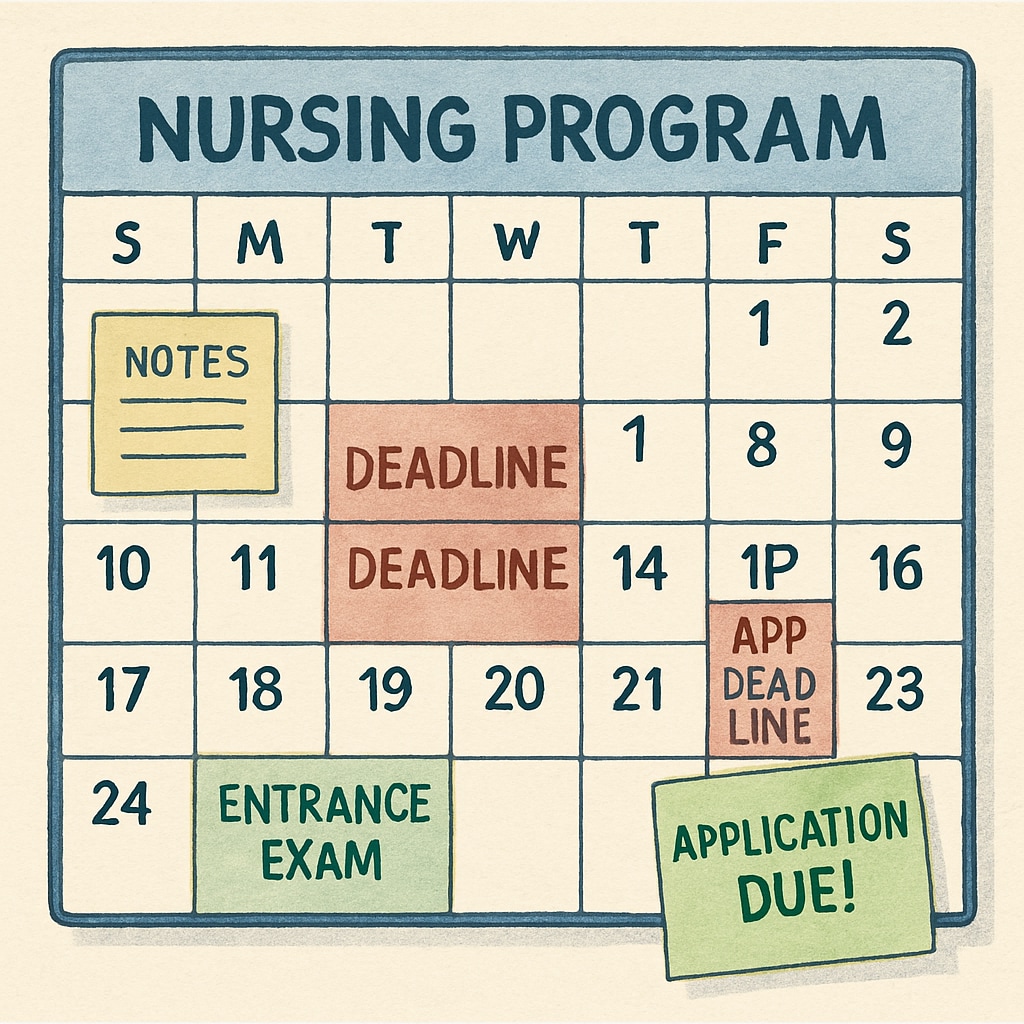Transferring to a nursing program from a community college can be a rewarding yet challenging journey, especially when considering factors like GPA, admission cycles, and school selection. For students with a GPA of 3.2, navigating these hurdles requires a clear strategy to ensure success without unnecessary delays. This article provides actionable advice on selecting the right nursing schools, preparing competitive applications, and managing timelines effectively to avoid setbacks in your academic and career goals.
Choosing the Right Nursing School for a Seamless Transfer
When transferring to a nursing program, selecting the right school is critical. Community college students often have unique challenges, such as balancing academic responsibilities with work or family obligations. Therefore, it’s important to identify nursing programs that align with your needs and career goals.
- Accreditation: Ensure the nursing program is accredited by a recognized body like the Accreditation Commission for Education in Nursing (ACEN) or the Commission on Collegiate Nursing Education (CCNE).
- Articulation Agreements: Check if your community college has transfer agreements with four-year institutions. These agreements can simplify the credit transfer process and improve your chances of admission.
- Program Competitiveness: Research the average GPA and prerequisites required by the nursing schools on your list. For a GPA of 3.2, target schools with slightly flexible admission criteria while still maintaining high academic standards.
- Location and Cost: Proximity to home and affordable tuition rates can make a significant difference in managing expenses and personal responsibilities.
Pro Tip: Many nursing schools provide detailed transfer guides on their websites. Use these resources to identify compatible programs and ensure you meet all the requirements.

Preparing a Strong Application for Nursing Program Admission
Once you’ve identified your target schools, the next step is crafting a strong application. Admission to nursing programs is often competitive, so standing out is essential.
- Prerequisite Courses: Ensure you’ve completed all required courses with high grades. Most nursing programs emphasize subjects like biology, anatomy, and chemistry.
- Relevant Experience: Volunteer or work experience in healthcare settings can significantly boost your application. Roles such as a Certified Nursing Assistant (CNA) or volunteer work in hospitals demonstrate your commitment to the field.
- Personal Statement: Write a compelling essay that highlights your passion for nursing, your academic journey, and your career aspirations. Be specific about how the program aligns with your goals.
- Letters of Recommendation: Obtain strong letters from professors, supervisors, or healthcare professionals who can vouch for your academic and professional potential.
Common Pitfall: Avoid submitting incomplete applications. Double-check all requirements, including transcripts, test scores, and application fees, to ensure your submission is error-free.
Navigating Nursing Program Admission Cycles
Nursing program admission cycles can vary significantly, and missing deadlines could delay your academic progress by up to a year. Therefore, careful planning is essential.
- Application Deadlines: Most nursing schools have specific admission windows, often tied to fall or spring semesters. Create a calendar to track deadlines for each program.
- Rolling Admissions: Some nursing programs offer rolling admissions, where applications are reviewed as they are received. Applying early can improve your chances of acceptance.
- Waitlists: If you are placed on a waitlist, contact the admissions office to express continued interest and inquire about additional steps to strengthen your application.
- Backup Options: Apply to multiple schools to increase your chances of acceptance. Include a mix of competitive and less competitive programs.
Pro Tip: Don’t hesitate to reach out to admissions counselors for guidance. They can provide valuable insights into the selection process and help you avoid common mistakes.

Boosting Competitiveness with Additional Strategies
For students with a GPA of 3.2, improving competitiveness can open doors to more selective programs. Here are additional tips to enhance your profile:
- Retake Key Courses: If possible, retake prerequisite courses where you scored below a B to raise your GPA.
- Standardized Tests: Some programs require entrance exams like the TEAS (Test of Essential Academic Skills). Prepare thoroughly to achieve a high score.
- Professional Certifications: Earning certifications like Basic Life Support (BLS) or becoming a Certified Nursing Assistant (CNA) can demonstrate your readiness for the profession.
- Networking: Attend nursing program open houses or join professional organizations like the National Student Nurses’ Association (NSNA) to build relationships and gain insights.
As a result of these efforts, you can improve your chances of acceptance into a nursing program that matches your aspirations, even if your GPA is slightly below the average for highly competitive schools.
In conclusion, transferring to a nursing program from a community college requires careful planning and execution. By selecting the right schools, preparing strong applications, and managing admission cycles effectively, you can achieve your goal of becoming a nurse without unnecessary delays. Remember, persistence and strategic planning are key to success in this journey.
Readability guidance: Use short paragraphs and lists to summarize key points. Ensure a balance of statistics, actionable advice, and motivational language to engage readers effectively.


